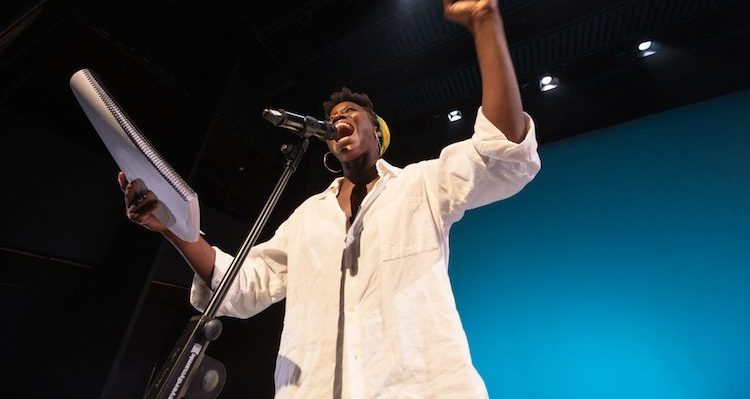
The Teatre Nacional de Catalunya launched its new season in dramatic weather last Saturday which seemed generated for the occasion. The theatre’s pledge to open ‘a gateway to the world’ – written in bold deep-blue letters across the entrance – gave way into something more ambitious and self-aware: that vast spacey lobby that you feel you could float off in, infiltrated by soothing new announcements delivered with the airy detachment of a superior kind of AI.
New Direction
Command here, was key: for the next five years, the TNC comes under the artistic direction of Carme Portaceli, the first woman to hold the post. Among her previous productions include confident contemporary versions of classics by women, including Virginia Woolf (Mrs Dalloway), Charlotte Brontë (Jane Eyre), Mary Shelley (Frankenstein), as well as Welsh playwright Abi Morgan’s Splendour, a play about denial during the escalation of a civil war.
EU Dissected
Running for Democracy, like the quirky Eurohouse by French / Greek-British duo Bert and Nasi, and physical theatre piece Europa Bull (back again later in the season), is a demanding piece that throws the uncomfortable issue of the EU against the wall. Part of a wider ongoing project called Between Lands, the meaning and method of ‘democracy’ is discussed through six pieces by playwrights of different countries. For the TNC performance, most of the texts were translated into Catalan, with Pier Lorenzo Pisano’s Italian piece projected in a torrent of English onto the
stage’s back wall.
In a Hurry
Actors read from scripts like representatives elected to win over an audience. The themes are topical, the performances good, but the show over-informative and in a hurry, settling on an audience for two hours in a single night where it delivers its discussion points, before scooting off to another European city. Directors shuffle too: Flemish director Michael De Cock took on the TNC’s performance. Portaceli heads to Reims.
Moral Courage
As De Cock explains, the wider project is bigger than its individual parts: the aim, to try to hold the fragile construction of Europe together, not by force but through a reassertion of morality in critical times, of democracy as Europe’s and the world’s best hope for common ground.
